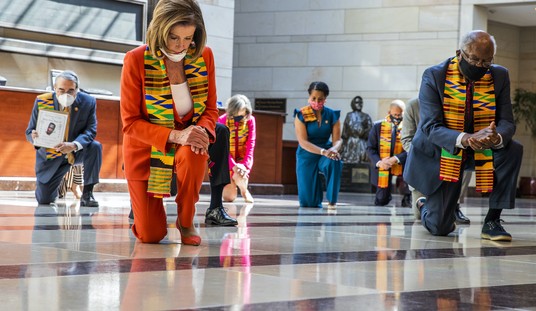
Alpha Company, 3d Battalion, 6th Infantry passes in review at the July 4 parade on the Four-Ring at McNair Barracks, Berlin. July 4, 1982. Photo: US Army photo, public domain. Credit: Das AlliiertenMuseum, Berlin.
Since Colonel Mike isn’t around to spin his yarns this morning, it is my duty to take up the slack. What follows is a tale that was inspired by my colleague Alex Parker.
This is a tale of perseverance. Of mutiny. Of justice maintained. And of an old dog showing younger dogs that he was a force to be reckoned with.
Back when I was 23 years old, weighed 155 lbs, had a full head of hair and thought beer was food, I was a infantry lieutenant assigned to 4th Battalion, 6th Infantry (Regulars, By God) at McNair Barracks, Berlin. McNair was affectionately know as the “Gator Farm” because it housed three battalions of the 6th Infantry an our unit crest featured an alligator to commemorate our participation in the Seminole wars:

The scaling ladder is in memory of the 6th Infantry storming Chapultepec during the Mexican War. The juxtaposition of the two resulted in the troops claiming it meant that we were so low that we had to climb a ladder to kiss an alligator’s ass.
McNair Barracks was a pre-war Siemens radio factory that was confiscated in 1945 being one of the few undamaged structures remaining in that shattered city.
This first video show McNair as I knew it. My battalion was in the wing with the clock tower. The second video is it as it is today.
This is it after conversion into civilian housing.
Infantry units, particularly spirited ones, hover in a state of near mutiny. There is probably not a more arrogant creature on earth than a 20-year-old American infantryman who knows he’s very good at his job. He’ll let leadership know constantly that he’s not just another guy in a uniform and that to get respect, and not mere obedience, from him respect must be shown to him.
We had a newly arrived First Sergeant. He’d come to us from “The Zone” (the term a carry over from The Zone of Occupation and that was what Berlin troops called West Germany) to punch his ticket in an environment that remarkably benign for senior NCOs. Where junior officers were confronted with an endless series of “bet your bars” activities, so long as the correct paperwork was processed on time and reasonably accurately, life was pretty pleasant. There was even an unwritten rule that platoon sergeants and first sergeants and sergeants major didn’t go to the field while we were “in city.” Our First Sergeant was a gray, non-charismatic type who’d made his rank serving in staff positions. The troops wasted little time in letting him know, indirectly, that they were of the opinion that he was in the wrong outfit.
My platoon occupied a series of 8-man rooms (four sets of bunk beds and two wall lockers per man, one for issue gear and one for personal clothing) and we had one gang latrine. It was here that the subversion began.
Someone began leaving graffiti on the latrine walls written in human feces. The graffiti focused on the First Sergeant’s sexual proclivities and maybe even his sexual identity. The chief suspect was one of my troopers who was nicknamed “Tex.” Tex didn’t like the First Sergeant. He was also about 6’4″, which comported with the height of the graffiti off the floor.The First Sergeant made inquiries of an increasingly demanding nature but no one gave up Tex, the graffiti continued, and grew more florid and descriptive. The “Mad Sh**ter” became a man of legend. The First Sergeant was sort of caught in a conundrum and, to his credit, he realized it. He couldn’t very well allow this to continue because it was becoming a topic of conversation outside the company and he was losing respect. He could elevate the issue to the company commander (who was blithely unaware of this melodrama developing in his barracks as commanders often are…though sometimes they are unaware by design) who would bring smoke on the platoon leaders to ferret out the criminal, but this would be a senior NCO admitting to everyone that he needed his company commander’s help to fix a very personal disciplinary issue.
One day, during a break in training around the barracks, I did a walk-through of my platoon bay. When I go into the latrine I come face-to-face with one of my troops seated behind a field table. He was wearing a helmet liner (this was in the days of the steel pot), a key indicator that he was on some kind of guard duty. On the desk were a half-dozen rolls of toilet paper and a clipboard.
In order to use any of the facilities, you and the latrine guard had to conduct a joint inspection of the urinal or toilet and stall, both sign off on the condition, toilet paper was issued, business conducted, toilet paper returned, and a final clearance inspection performed. Guard duty was in two-hour shifts around the clock.
Graffiti stopped. Guard duty didn’t.
Within 48 hours someone had given up Tex.
Tex spent the next two weeks cleaning, by himself, all the latrines in the company (three large gang latrines). The giggles behind First Sergeant’s back stopped. He was never loved but he was treated with respect from that point forward and no one crossed him.












Join the conversation as a VIP Member